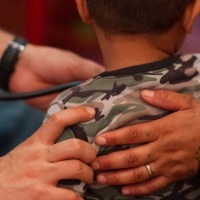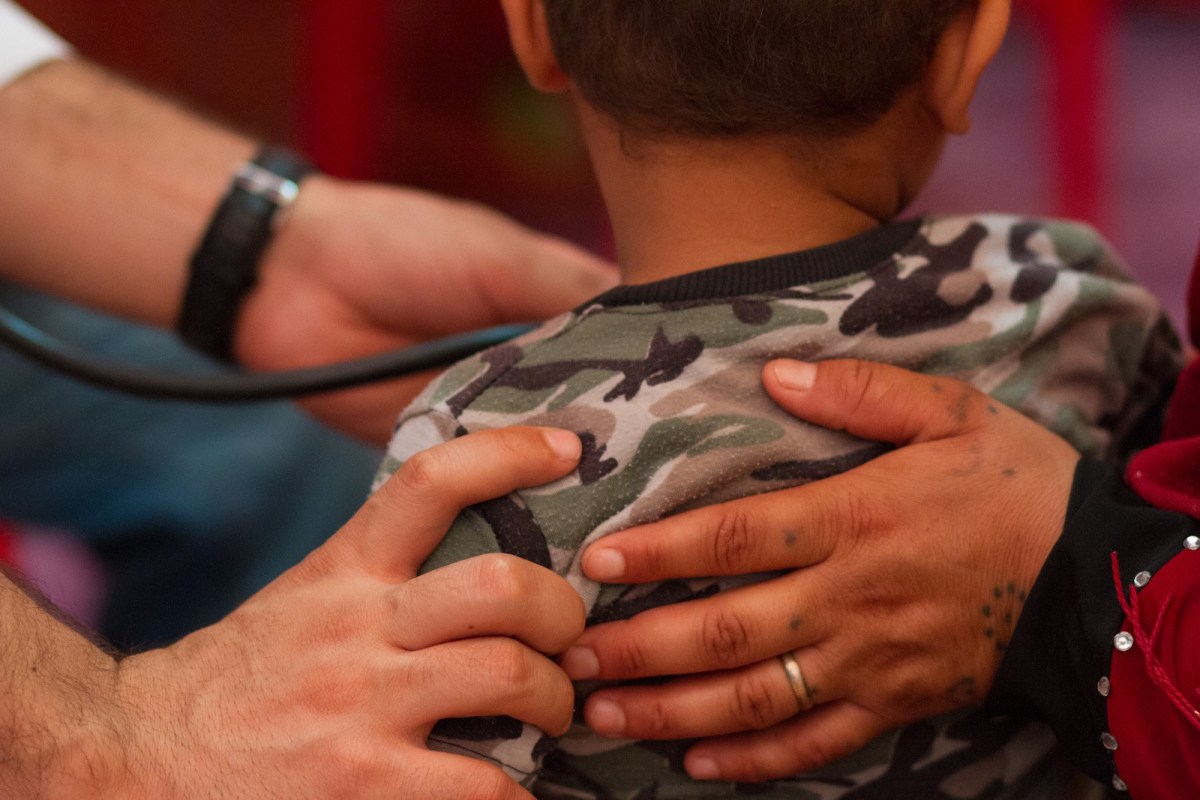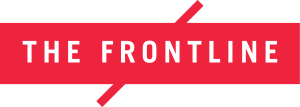We were halfway through our meeting when Dr. Khudama started to cry. It was hard to tell who was more surprised by the hospital manager’s tears, us or her.
The empty hallways should have been a giveaway that something was off, but in our rush to get to a hospital training session already in progress, the echoing of our feet off the tiled walls didn’t register.
“Since yesterday, all the medical staff in Mosul are on strike.” Dr. Khudama paused. “All but us.”
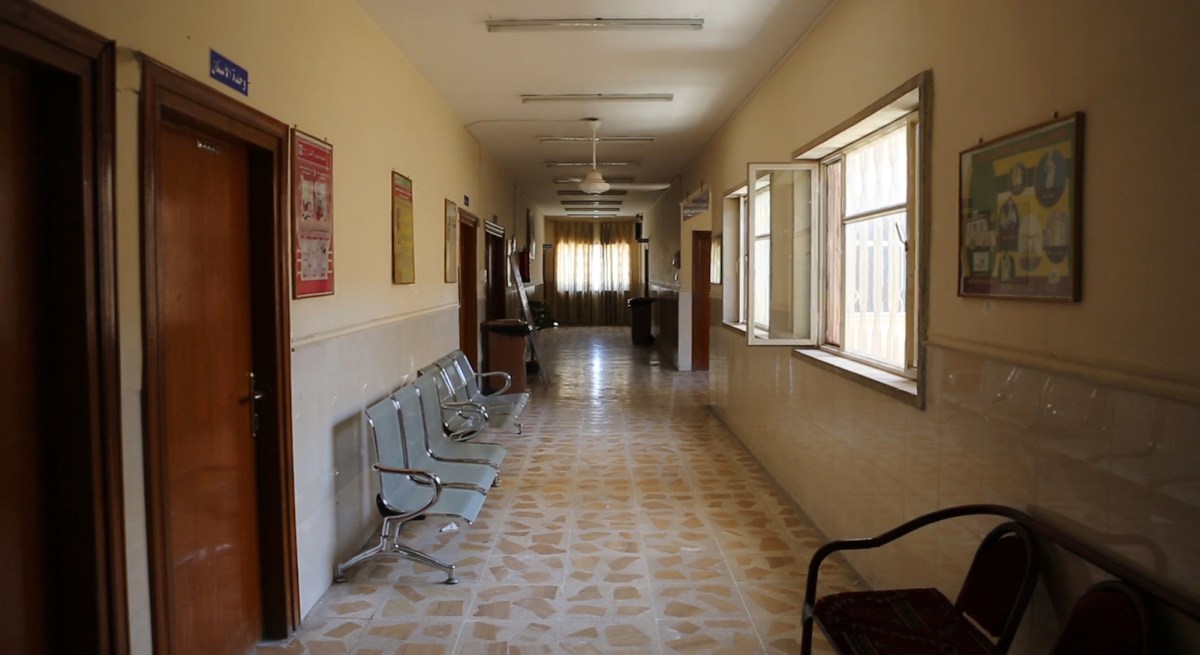
No one could have blamed Dr. Khudama if she had chosen to flee Mosul when ISIS overran the city with brutality. Many professionals (and frankly, almost anyone with means) left for other cities, for other countries, in order to keep their families safe.
Dr. Khudama chose to stay. She chose to serve her people. She chose to face the particular danger posed to her by ISIS—as a doctor, as an educated person, and as a woman.
Earlier this year, Dr. Khudama took over management of a hospital in east Mosul. When we sat down with her several months later, it was clear she understood the complicated nature of the work. But she might have underestimated the emotional toll it would take.
“My staff are good, good people.”
The truth is, the majority of the staff at this and every other health center in Mosul worked for two years without pay under ISIS. And since being liberated from ISIS rule, they continued to work for six months without pay by the government. These skilled medical professionals and support staff long ago drained whatever savings they might have had. When you factor in transportation, it actually cost them money to work—with no pay, for two and a half years.
“If it wasn’t for Preemptive Love, our doors would be closed. We are so grateful for you!”
Dr. Khudama didn’t have to face this difficult situation alone. She had you on her side. At this hospital, eight other clinics in Mosul, and so many other places in war-torn Iraq and Syria, you are showing up and bridging gaps so Iraqis and Syrians get what they need to live.
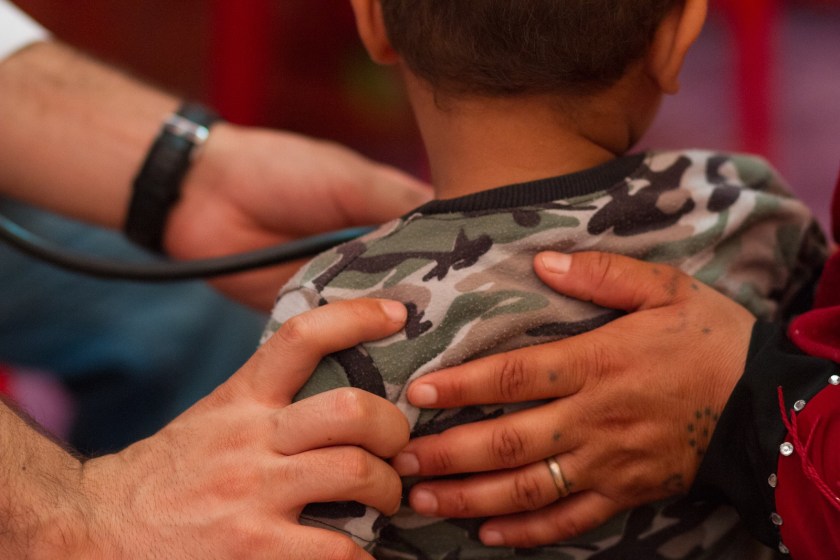
At the hospital, you pay for Dr. Khudama’s salary, as well as that of a small core staff: a doctor, nurse, and pharmacist. We are able to commit to paying their salary in this transition period after ISIS rule—because of your commitment to donate monthly.
This small team was able to keep the hospital doors open for emergency cases through the week-long strike, when all the other hospitals and clinics around them were closed. The hospital normally serves a resident base of 20,000 people. But on this particular week, it was the only source of emergency health care for tens of thousands more.
“If it wasn’t for Preemptive Love, our doors would be closed.”
Where the gaps show up, you give local medical teams the flexibility to respond.
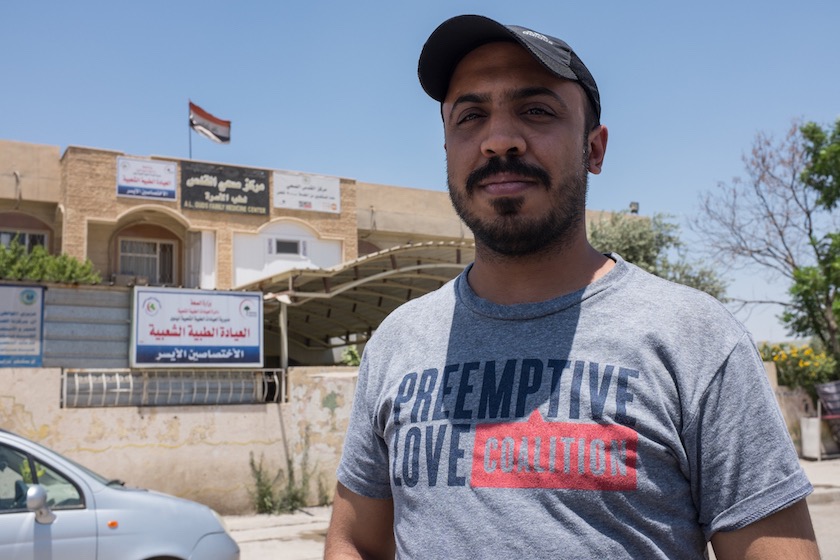
Life under ISIS was always uncertain. Life in newly liberated communities is still uncertain in so many ways. The wait for life to return to normal—uncertain.
Your commitment to regular, monthly donations allows us to show up in the middle of uncertainty, and provide some stability. You let us know how much funding we can count on every month, which allows us to know our capacity to commit to medium-term transition projects.
Today the hallways of this Mosul hospital are full of patients and staff. The sidewalk out front is filled with vendors selling cold drinks and photocopy services. The road to “normal” is still slow and uncertain, but because of you, they don’t face uncertainty alone.

